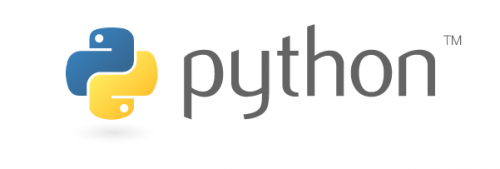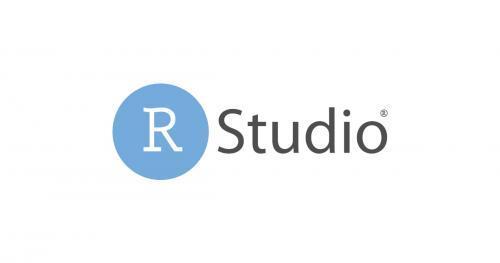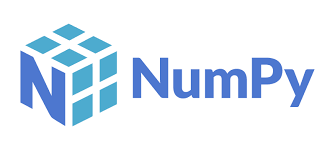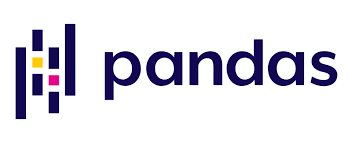Master of Data Science (Applied) Online
2.7 years part-time
MDSA
Eligible for Fee-HELP. Learn more
March 2024
Online
Course Overview
Command the most sophisticated data science tools through our real-world learning, with your hands-on expertise ready to take into the workplace immediately.
Let our reputation enhance yours. By learning directly from data scientists who are at the forefront of their field, you're guaranteed an exceptional quality of learning and industry recognition.
Everything you will learn is tethered to the real world and designed for impact. Graduate from a top 1% university, gain more influence at work and unlock leadership opportunities.
Why study data science with us?
Real-world languages and tools

Python
Known as a Swiss Army knife of the coding world, Python is the most popular and easy to use programming language that demands the highest salaries. You will learn Python programming in this program.

R & R Studio
Our data certification will teach you to master the most powerful tools in R that will allow you to turn raw data into insights. Learn how to wrangle, analyse and visualise data using R in the course ‘Data taming, modelling, and visualisation’.

NumPy
NumPy is an important linear algebra library in Python that data science and machine learning packages depend on. During your online-date science program, you will become familiar with how to build multidimensional arrays and high-level mathematical functions throughout this program.

Pandas
Pandas is another Python software library used for data manipulation and analysis. Our postgraduate data science coursework covers how to explore, clean, transform, visualise and learning from data using Pandas.

Matplotlib
Matplotlib is used to create high-quality graphs, charts, and figures – an essential component of data science. Learn how to use Matplotlib in ‘Foundations of computer sciences – Python A’.
Flexible online learning
Studying data science online gives you the freedom to study on your terms.
How long is each subject? Upskill faster by completing one course every six weeks.
What should I expect? Strengthen your command of the most sophisticated data science tools through practical, real-world learning. All coursework is industry aligned - so you’ll be working with messy data sets and experiencing the same tools and database systems that top data scientists use today. Your hands-on expertise will be ready to take into the workplace immediately.
The University of Adelaide has partnered with Pearson, the world’s leading global learning company, to deliver this degree 100% online. The Partnership has been established to deliver the very best experience and learning outcomes to all our students. Students will be awarded a University of Adelaide qualification and this degree meets the University's highest quality standards.
*QS Graduate Employability Ranking 2022.
What skills will I gain?
What skills will I gain?
Through the Master of Data Science (Applied), you will experience:
- extracting meaningful information by manipulating real-world, messy datasets with Python and R
- using best-in-class tools, techniques and theories
- fail-safe communication tactics
- the strategic impact of data science within various industry contexts
- technical data practice and management
- how to follow ethics, codes of conduct and other standards.

Meet our alumni
'I've become highly visible at work because I can marry our business needs with the technical. I'm the glue.'
Nazzeef Nazri, MDS Online Student and Data & Analytics Manager.
What will my data science assignments be?
All assessments and coursework are 100% online. Types of assessments include:
- quizzes
- case studies
- scenarios
- simulations.
Download a brochure to learn more.
Contact us now
Contact us now
Get your questions answered
Hours: Monday – Thursday, 8.30am to 5pm (ACST/ACDT), Friday, 8.30am to 4.30pm (ACST/ACDT).
We can help you with:
- entry requirements
- curriculum
- key dates & intakes
- your unique situation
- finance.

The data science job market is growing as organisations employ large numbers of data specialists and data analysts to demystify today’s world. Be at the forefront of this exciting career opportunity, no matter what your background is.
Data Science skills are transferable to virtually any industry: big companies, the public sector and innovative startups are all offering data scientists competitive salaries to help them unlock the way forward.
Healthcare is increasingly being targeted by cyber criminals. Strengthen and monitor the health sector’s systems by conducting checks and benchmark data - using your skills gained from our data science courses.
-
Human and ethical factors in computer science - COMP SCI 7212OL
You will study two important areas in contemporary computing – human factors and ethical theory and practice – to determine whether your work aligns with definitions of what is right for individuals, companies, and society. By combining two areas of data science, participants will learn how to apply tools and analysis tactics to establish whether the computing tasks they are being asked to perform are fit for purpose in terms of both usage and ethics.
-
Data taming, modelling and visualisation - DATA 7201OL
A practical introduction to finding relationships in data using statistical methods, this course covers the principles of taming and tidying data. It familiarises students with:
- different types of data
- exploratory data analysis
- visualisation techniques
- data transformation
- model fitting and interpretation.
One of the course’s core aims is to introduce R programming for data science applications through real-world case studies.
-
Foundations of computer sciences: Python A* - COMP SCI 7210OL
This course will develop your coding and problem-solving skills with a focus on data science principles. You will learn algorithm design and programming concepts such as:
- data selection iteration
- functional decomposition
- data abstraction and organisation.
You will complete this course with the confidence to apply fundamental software development skills including Python programming language, debugging, testing and other fundamentals of programming practice.
View course outline
*Students entering from a cognate area who have already completed Python A will be required to undertake appropriate alternative courses. The alternative course/s may come from other discipline areas. -
Applied Data Science - DATA 7202OL
An introduction to the role and application of data science in modern organisations and societies, this course includes processes for data collection, analysis, verification and validation. Case studies will be used to demonstrate current best practice and common pitfalls.
*Students who have not completed Maths Methods Level 2 (or equivalent) to Senior Secondary Certificate level will be required to complete Applied Data Science and Mathematics (MATHS 7203OL).
-
*Applied Data Science and Mathematics - MATHS 7203OL
In this course you will be introduced to the role and application of data science in modern organisations and societies and the fundamental mathematical tools used by data scientists. The course includes processes for data collection, analysis, verification and validation. The mathematical tools include functions and graphs, basic concepts of calculus, probability and statistics.
*Students who have not completed Maths Methods Level 2 (or equivalent) to Senior Secondary Certificate level will be required to complete Applied Data Science and Mathematics (MATHS 7203OL) instead of Applied Data Science (DATA 7202OL).
-
Foundations of computer sciences: Python B* - COMP SCI 7211OL
This course introduces fundamental concepts of data science applications in Python. You will develop several applied data science skills, including:
- object-oriented fundamentals, methods, and classes
- algorithms and problem-solving processes and strategies
- computational complexity of algorithms
- software development tools and techniques.
*Students entering from a cognate area who have already completed Python B will be required to undertake appropriate alternative courses. The alternative course/s may come from other discipline areas.
-
Applications of data science - DATA 7301OL
This course provides a practical introduction to data modelling, analysis and prediction using contemporary software packages. You will also be given an overview of common data science techniques and their implementation in software libraries.
-
Mathematical Foundations of Data Science - MATHS 7027OL
You will learn fundamental mathematical concepts relevant to computer science in this course.
It also provides a basis for further postgraduate study in the following fields:
- data science
- statistical machine learning
- cyber security.
-
Real data: Modern methods of finding hidden patterns - DATA 7302OL
Building on skills acquired in the DATA 7201OL Data taming, modelling and visualisation course, this course introduces advanced techniques for extracting meaningful information from real-world datasets. It covers a range of methods, including:
- generalised linear models
- classification
- advanced regression techniques
- unsupervised statistical learning.
This course will also teach advanced R programming techniques for data science, as well as data-wrangling techniques.
-
Big data analysis and industry project - COMP SCI 7319OL
Practice evaluating, selecting and applying relevant data science techniques, principles and theory to a medium-scale, real-world, industry-motivated dataset. You will need to identify any social concerns and apply an appropriate ethical frameworks for data management. You will then present your findings via both a written and oral presentation that covers your project design, plan, methodologies, and outcomes.
-
Using machine learning tools - COMP SCI 7317OL
Learn to build software that uses pre-existing tool kits as appropriate to solve a variety of machine learning problems. The course will have a practical focus using case studies and work place examples, with an emphasis on ensuring that solutions are valid and verifiable.
-
Working with big data - DATA 7203OL
Use big data tools to explore large data sets. Discover practical algorithms used for solving problems when mining of massive datasets. It focuses on parallel algorithmic techniques that are used for large datasets in the area of cloud computing. Furthermore, stream processing algorithms for data streams that arrive constantly, page ranking algorithms for web search, and online advertisement systems are studied in detail.
-
Business data and cyber security - COMMGMT 7023OL
Business data & cyber security will prepare you for navigating the constantly changing use of data and information in a business world that requires ongoing cyber security awareness and vigilance. Value and vulnerability of business data for decision making and problem solving are a core focus. You will emerge from this course with the skills required to apply cyber secure practices in a business setting.
-
Decision sciences - APP MTH 7201OL
This course is focused on equipping students with simulation techniques to underpin decision-making. Simulation is widely used to model systems, to evaluate risk, and to optimise objective functions, with the goal to inform decisions. Building up from uniform random generation, some of the key simulation techniques used for efficient simulation to support decision-making will be presented. This course covers:
- uniform random number and random variable generation
- random process generation
- discrete-event simulation
- basic statistical analysis of simulation data
- applications in systems
- modelling and risk analysis
-
Research methods - COMP SCI 7415OL
This course will prepare you to design effective work place research that will align with industry professional standards. You will be introduced to design principles, methodologies and tools, such as controlled experiments, statistical tests, surveys and sampling, analysis of quantitative data and how to evaluate threats to validity of the research. In addition, you will also explore how to effectively evaluate published research and communicate research results to peers and colleagues in the workplace.
-
Data science research project* - DATA 7303AOL & 7303BOL
Undertake an individual applied research project based within a workplace or industry context. This can form part of your portfolio you use for future job applications.
The final research project is the equivalent to two courses and will span two online teaching periods.
View course outline - DATA 7303AOL & DATA 7303BOL
Master of Data Science (Applied)
Academic entry requirements
To be eligible for the 100% online Master of Data Science (Applied) and the Graduate Diploma in Data Science (Applied) you will need to meet the following entry requirement:
1. A completed bachelor's degree or equivalent in any discipline with a minimum GPA of 4.5 (7.0 GPA scale).
What kind of maths background do I need?
While there is no requirement to have a mathematical background to enter the program, it is important to have a solid grasp of core mathematical concepts before undertaking a data science program as almost all of the techniques are underpinned by maths. You should have completed Mathematical Methods (or equivalent) during Senior Secondary School*.
Students who have not completed Mathematical Methods Level 2 (or equivalent) will be simply be required to complete Applied Data Science and Mathematics (MATHS 7203OL) in their first carousel, instead of Applied Data Science. In this course you will be introduced to the role and application of data science in modern organisations and societies and the fundamental mathematical tools used by data scientists.
Your Enrolment Advisor will be able to advise on the best path for you depending on your background.
*If you studied algebra and calculus during your undergraduate studies, you may not need to provide evidence of completing SACE Stage 2 Mathematical Methods. Your bachelor’s degree transcript may suffice if it details these mathematics courses. Please contact 1300 293 830 or speak to your Enrolment Advisor for further information.
English language requirements
In order to meet the English language proficiency requirements for our 100% online postgraduate programs, you must be able to demonstrate that you meet the minimum English Language requirements.
Typically, if English is your first language you will not be required to provide evidence of English language proficiency. You will also not be required to provide evidence of English language proficiency if you are an Australian citizen, Australian Permanent Resident (visa status) or hold a passport from one of the following countries: Canada (English-speaking provinces only), New Zealand, the Republic of Ireland, the United Kingdom and the United States.
To learn more, visit the English Language Proficiency Requirements for detailed information about these requirements, including acceptable English language tests.
We also recommend that you speak to an Enrolment Advisor to discuss options that are specific to your circumstances. You can schedule a call here.
How to apply
Confirm the application close date of the next teaching period by checking the Important Dates page to avoid missing out. Create an account via the University of Adelaide Application Portal.
It is possible to enrol in either the graduate certificate, graduate diploma or masters program. If you wish to apply for the graduate diploma or masters, you will need to provide proof that you have completed the required level of mathematics.
Complete application form and upload supporting documents which include:
- valid photo ID (passport or driver's licence)
- proof of citizenship / permanent residency
- transcripts from your complete bachelor's degree or equivalent
- proof of completion of Mathematical Methods or equivalent (if applicable)
- change of name documents if applicable (e.g marriage certificate)
- English language requirements (if you are an international applicant).
You’ll be hearing from our enrolment team in the coming weeks who will confirm the outcome of your application.
Graduate Certificate in Data Science (Applied)
To be eligible for the 100% online Graduate Certificate in Data Science (Applied), you will need to meet the following requirement:
- A completed bachelor's degree or equivalent in any discipline with a minimum GPA of 4.5 (7.0 GPA scale).
What is the total cost?
$70,512 or $4,407 per course (2024 fees). Please note that the data science research project is two courses.
Find more information on fees for domestic students, including annual fees and fee increases, in the Fees (domestic students) section.
Is there FEE-HELP available?
Yes, Australian citizens are eligible for a HELP loan. You must also be enrolled in a program with the University of Adelaide by the enrolment deadline (census), and have not reached the HELP loan limit.
Once you have been offered a place in a University of Adelaide program, you will be able to apply for a HELP loan as a part of the enrolment process. Please see our FAQs section for further details.
-
Is math important in a Master of Data Science?
While there is no requirement to have a mathematical background to enter the program, it is important to have a solid understanding of core mathematical concepts for an online Master of Data Science (Applied), as almost all of the techniques are underpinned by maths.
Students who have not completed Mathematical Methods Level 2 (or equivalent) to Senior Secondary Certificate level will be required to complete Applied Data Science and Mathematics (MATHS 7203OL) in their first carousel instead of Applied Data Science. In this course you will be introduced to the role and application of data science in modern organisations and societies and the fundamental mathematical tools used by data scientists.
If you studied algebra and calculus during your undergraduate studies, you may not need to provide evidence of completing SACE Stage 2 Mathematical Methods. Your bachelor’s degree transcript may suffice if it details these mathematics courses.
Please speak to your Enrolment Advisor who will be able to advise on the best pathway for you to take depending on your background.
-
Who is eligible for a Master of Data Science?
To be eligible for an online Master of Data Science you must have completed a Bachelor’s degree or equivalent in any discipline with a minimum GPA of 4.5 (7.0 GPA scale).
The Master of Data Science is applicable to a broad range of industries such as technology, business and healthcare, as well as those working in data science or analyst roles who want to take their skills up a level, managers who work with data to make business decisions and specialists who need to translate data into actionable insights for management.
Make your next career step a reality and awaken your full potential with Australia's smarter data degree from the University of Adelaide.
-
Can I study a Master of Data Science without a Bachelor's degree?
To be eligible for an online Master of Data Science you must have completed a Bachelor's degree or equivalent in any discipline with a minimum GPA of 4.5 (7.0 GPA Scale).
-
Are data science qualifications worth it?
Data science qualifications are important as they demonstrate your data skills to future employers. Many hiring officers, especially in government, look for proof of education, and studying an online Master of Data Science will help you progress your career in data science and analytics.
-
Is it possible to learn data science online?
You can learn data science online with the University of Adelaide's 100% online Graduate Certificate in Data Science (Applied) and the online Master of Data Science (Applied). These programs are taught exclusively online and are designed to fit in busy schedules.
-
What is the weekly workload when studying the Master of Data Science?
The Master of Data Science (Applied) students will complete one course every six weeks – with all assessments and coursework 100% online. Study data science online at a pace that works for you with the University of Adelaide.
-
How long is the weekly workload when studying the Master of Data Science?
A Master of Data Science takes 2.7 years (part-time) to complete. The University of Adelaide's online Master of Data Science (Applied) is designed to fit it into a busy lifestyle.
-
Am I eligble for Recognition of Prior Learning (RPL) and what is the maximum for the Master of Data Science?
The University of Adelaide may grant credit for recognised prior learning, provided it is relevant, current and equivalent to the learning required for its academic programs and courses. For the Master of Data Science (Applied), recognised prior learning must be aligned with the entry requirement:
-
A completed bachelor's degree or equivalent in any discipline with a minimum GPA of 4.5 (7.0 GPA scale).
Within a University of Adelaide Masters Degree, a maximum of one half credit units may be counted towards the program from:
-
External learning
-
Completed University of Adelaide programs
A maximum of one quarter credit units may be counted towards the program from cross-institutional or student exchange study.
Learn more about the academic credit arrangements policy in our University Policies and Procedures or schedule a call with our Expert Advisors to find out more.
-
-
What kind of data software is taught in the Master of Data Science?
Learn real-world languages and tools with the Master of Data Science (Applied). You’ll be trained in industry standard data languages and tools such as:
-
Python
-
R&R Studio
-
NumPy
-
Pandas
-
Matplotlib
-
-
Can I study the Master of Data Science if I have never done programming before?
Prior programming skills are not a requirement to study the Master of Data Science (Applied) – and don’t let a lack of programming experience discourage you from pursuing your data science ambitions. University of Adelaide data science online programs will teach you everything you need to know to attain success in the field of data science, with or without an existing background in this area.
Data science is a fast-growing, emerging profession – if you have a passion for analytics, research, problem solving, business or marketing, it could be for you. It’s a multidisciplinary field that can take you to many places and many different industries with the right qualifications.
Get in touch
Get in touch
Our Expert Advisors are available
Hours: Monday – Thursday, 8.30am to 5pm (ACST/ACDT), Friday, 8.30am to 4.30pm (ACST/ACDT).
We can help you with:
- entry requirements
- curriculum
- key dates & intakes
- your unique situation
- finance.

Download a brochure now
Download a brochure now
Request a brochure to learn more about:
- data science pathway
- program directors
- learning and career outcomes
- complimentary support services
- application process
- research project online
- assessments and more.

Apply now
Create an account to start your application
Applying for the online Master of Data Science is a quick and easy process. Find out if your application was successful in as soon as 2-5 days.
Want to better understand the application process?
Book a 1:1 call now with our enrolment advisors and we can walk you through the application process — from how to meet the entry requirements through to enrolling in your first subject.




